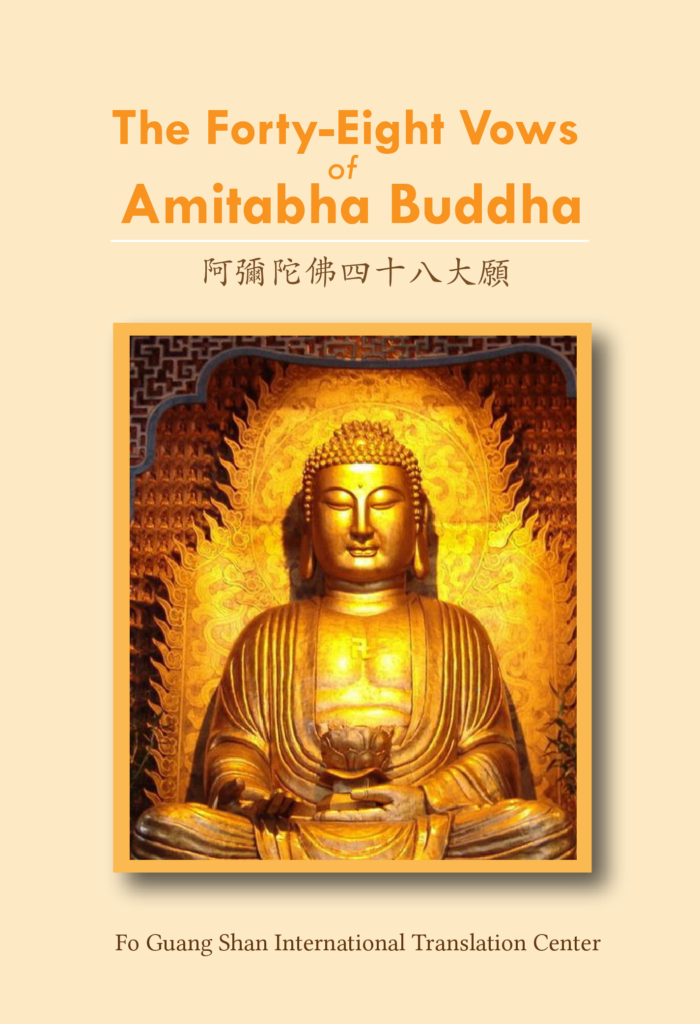
The Forty-Eight Vows of Amitabha Buddha
阿彌陀佛四十八大願
This English translation was originally published in The Amitabha Sutra As Discoursed By The Buddha in 2017.
Note: The Infinite Life Sutra (Ch. 無量壽經 Wuliangshou jing; Skt. Sukhāvatīvyūha sūtra), translated by Sanghavarman, is listed in volume twelve of the Taisho Buddhist Canon: T12-360(01).267c17–269b06.
Out of his great compassion, Amitabha Buddha generated forty-eight vows and created the Western Pure Land for all virtuous practitioners. Regardless of whether we want to be reborn in the Pure Land, it is important for us practitioners to always be reminded of his great vows and to contemplate them in order to cultivate our own mind of compassion.
Please enjoy this English-only digital edition of The Forty-Eight Vows of Amitabha Buddha.
